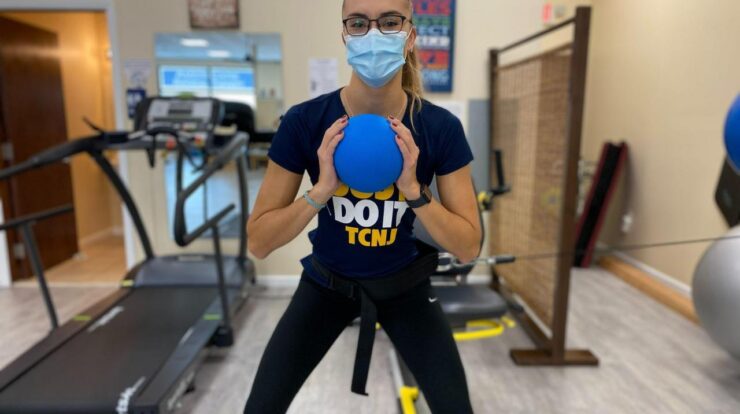
Tired of pricey dental visits for gum disease? Discover how to cure gum disease without a dentist in this comprehensive guide. We’ll dive into natural remedies, lifestyle changes, and home care techniques to help you regain a healthy smile, all from the comfort of your own home.
From DIY mouthwashes to stress-busting tips, this guide empowers you with the knowledge and tools to take charge of your gum health. Let’s get started on your journey to a gum-disease-free smile!
Natural Remedies
Gum disease is a common problem that can cause pain, bleeding, and swelling of the gums. While there are many conventional treatments for gum disease, there are also a number of natural remedies that can be effective in treating the condition.
One of the most effective natural remedies for gum disease is oil pulling. Oil pulling involves swishing a tablespoon of oil around your mouth for 15-20 minutes each day. The oil helps to remove bacteria and toxins from the mouth, and it can also help to reduce inflammation.
Coconut oil, sesame oil, and sunflower oil are all good choices for oil pulling.
Another effective natural remedy for gum disease is green tea. Green tea contains antioxidants that can help to fight bacteria and inflammation. You can drink green tea or use it as a mouthwash.
Aloe vera is another natural remedy that can be effective in treating gum disease. Aloe vera contains anti-inflammatory and antibacterial properties. You can apply aloe vera gel directly to your gums or use it as a mouthwash.
These are just a few of the many natural remedies that can be effective in treating gum disease. If you are suffering from gum disease, talk to your doctor about which remedies may be right for you.
Potential Side Effects
While natural remedies are generally safe, they can sometimes cause side effects. Some of the potential side effects of natural remedies for gum disease include:
- Oil pulling can cause nausea or vomiting.
- Green tea can cause insomnia or anxiety.
- Aloe vera can cause skin irritation.
If you experience any side effects from a natural remedy, stop using it and talk to your doctor.
Lifestyle Modifications

Adopting a healthier lifestyle can significantly impact gum health. Implementing simple changes can prevent and treat gum disease, promoting overall oral well-being.
Proper oral hygiene is paramount. Regular brushing, flossing, and tongue cleaning remove plaque and bacteria that contribute to gum inflammation. Brush your teeth twice daily with a soft-bristled toothbrush and fluoride toothpaste. Floss at least once a day to remove food particles and bacteria from between teeth.
If you’re looking for ways to cure gum disease without a dentist, you’re in luck! There are a few simple things you can do to help improve your oral health and get rid of gum disease. For more information on how to cure gum disease without a dentist, check out this helpful article . It has some great tips on how to cure gum disease without a dentist and improve your overall oral health.
Clean your tongue with a tongue scraper or a soft toothbrush to eliminate bacteria that can cause bad breath and gum disease.
Maintaining a Healthy Diet
A balanced diet rich in fruits, vegetables, and whole grains provides essential nutrients for healthy gums. Vitamin C, found in citrus fruits and leafy greens, supports collagen production, which is vital for gum health. Calcium, present in dairy products and leafy greens, strengthens teeth and bones.
Avoid sugary foods and drinks, as they promote plaque formation and contribute to gum disease.
Managing Stress
Stress can weaken the immune system, making the body more susceptible to infections, including gum disease. Engage in stress-reducing activities such as exercise, meditation, or spending time in nature. Adequate sleep is also crucial for overall health, including gum health.
Home Care Techniques
Regular and thorough home care practices are essential for effective gum disease management. These techniques help remove plaque and bacteria from the teeth and gums, preventing further inflammation and damage.
Did you know that it’s possible to alleviate the discomfort and inflammation of gum disease without visiting the dentist? For those seeking a cost-effective solution, how to cure gum disease without a dentist offers a comprehensive guide to natural remedies and self-care techniques that can help reduce pain, swelling, and bleeding gums.
Take charge of your oral health today and explore these proven methods for managing gum disease without a dentist’s appointment.
Here are some effective home care techniques for gum disease management:
Proper Brushing Technique
- Use a soft-bristled toothbrush and fluoride toothpaste.
- Brush your teeth at least twice a day, for two minutes each time.
- Angle the toothbrush at a 45-degree angle to the gum line.
- Use gentle, circular motions to clean the teeth and gums.
- Be sure to brush all surfaces of the teeth, including the insides, outsides, and chewing surfaces.
Flossing
- Floss at least once a day to remove plaque and bacteria from between the teeth.
- Use about 18 inches of floss and wrap it around your middle fingers.
- Gently slide the floss between the teeth and move it up and down to clean the sides of the teeth.
- Be careful not to snap the floss, as this can damage the gums.
Antiseptic Mouthwashes
- Antiseptic mouthwashes can help kill bacteria in the mouth and reduce inflammation.
- Use an antiseptic mouthwash as directed on the label.
- Do not rinse your mouth with water after using an antiseptic mouthwash, as this can reduce its effectiveness.
Interdental Brushes
- Interdental brushes are small, cone-shaped brushes that can be used to clean between the teeth.
- Interdental brushes are especially effective at removing plaque and bacteria from areas that are difficult to reach with a toothbrush or floss.
- Use an interdental brush as directed on the label.
Irrigators
- Irrigators are devices that use a stream of water to clean between the teeth and gums.
- Irrigators can be effective at removing plaque and bacteria from areas that are difficult to reach with a toothbrush or floss.
- Use an irrigator as directed on the label.
Alternative Therapies

Alternative therapies offer complementary approaches to conventional gum disease treatments. While they may not replace professional dental care, they can provide additional support in managing symptoms and improving overall oral health.
Acupuncture
Acupuncture involves the insertion of thin needles into specific points on the body. It is believed to stimulate the body’s natural healing response, reduce inflammation, and improve blood circulation. Studies suggest that acupuncture may alleviate gum pain and bleeding, but more research is needed to confirm its long-term effectiveness.
Herbal Remedies
Certain herbs possess anti-inflammatory and antimicrobial properties that may benefit gum disease. Tea tree oil, aloe vera, and goldenseal are commonly used in mouthwashes and gels. However, it’s important to note that herbal remedies should be used cautiously, as some may interact with medications or cause allergic reactions.
Laser Therapy
Laser therapy uses low-level lasers to target and destroy bacteria in the periodontal pockets. It is thought to reduce inflammation, promote tissue regeneration, and improve blood flow to the gums. While some studies show promising results, further research is necessary to determine its long-term efficacy and safety.
Gum disease can be a pain, but there are ways to cure it without a dentist. You can try using a mouthwash that contains chlorhexidine, which is an antibacterial agent that can help to kill the bacteria that cause gum disease.
You can also try using a toothpaste that contains fluoride, which can help to strengthen your teeth and prevent cavities. If you have severe gum disease, you may need to see a dentist for treatment. However, if your gum disease is mild, you may be able to cure it at home with these simple tips.
Prevention and Early Detection

Preventing and detecting gum disease early on is crucial for maintaining oral health. By understanding the signs and symptoms, and incorporating regular dental checkups and cleanings into your routine, you can effectively manage gum disease and preserve your oral well-being.
Identifying Signs and Symptoms, How to cure gum disease without a dentist
Recognizing the early signs of gum disease is essential for prompt intervention. Common symptoms include:
- Bleeding gums, especially when brushing or flossing
- Swelling, redness, or tenderness of gums
- Receding gums, exposing the roots of teeth
- Sensitivity to hot or cold temperatures
- Persistent bad breath or taste
Role of Regular Dental Checkups and Cleanings
Regular dental checkups and professional cleanings are vital for maintaining gum health. During these appointments, your dentist will:
- Examine your gums for signs of disease
- Remove plaque and tartar buildup
- Provide guidance on proper oral hygiene techniques
- Recommend additional treatments if necessary
Concluding Remarks: How To Cure Gum Disease Without A Dentist
Congratulations on taking the first step towards a healthier smile! Remember, consistency and patience are key when it comes to curing gum disease. By following the tips and techniques Artikeld in this guide, you can effectively manage and even reverse gum disease without breaking the bank.
Embrace the power of natural remedies, lifestyle modifications, and home care, and let your smile shine brighter than ever before.
Top FAQs
Can I cure gum disease completely at home?
While home remedies and lifestyle changes can significantly improve gum health, severe cases may require professional dental intervention. Regular checkups and cleanings are still essential for optimal oral health.
How long does it take to see results from home remedies?
Results vary depending on the severity of gum disease and the consistency of treatment. Some remedies may provide immediate relief from symptoms, while others may take several weeks or months to show significant improvement.
Is it safe to use essential oils for gum disease?
Certain essential oils, such as tea tree oil and clove oil, have antibacterial and anti-inflammatory properties that may benefit gum health. However, it’s crucial to dilute essential oils properly and use them with caution, as some can be toxic if ingested or applied directly to the skin.





